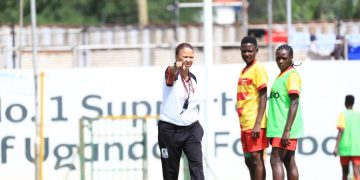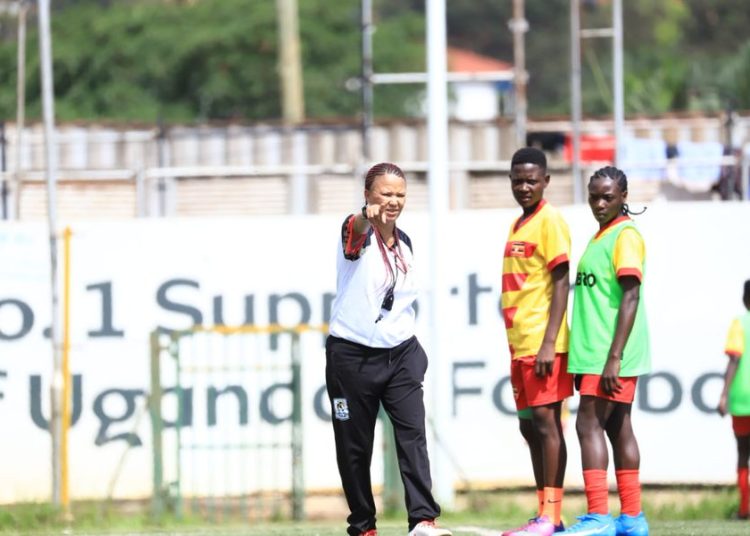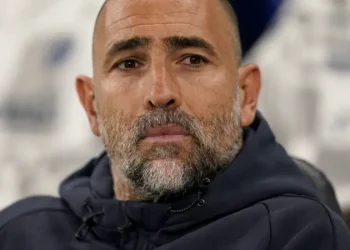Uganda Women’s National Team head coach Sheryl Botes has urged the Confederation of African Football (CAF) to introduce a Championship of African Nations (CHAN) tournament for women’s football.
The competition, currently exclusive to men’s football, is designed to develop home-based players and showcase domestic league talent on the continental stage.
Speaking during the announcement of Uganda’s provisional squad for the upcoming WAFCON 2026 qualifiers, Botes emphasized the need for a similar platform in the women’s game.
“We have to work tirelessly on developing our local players,” she stated. “We had a meeting with FUFA President Moses Magogo and floated the suggestion that CAF should consider organising a CHAN tournament for women.”
The CHAN tournament for men, launched in 2009, has been instrumental in improving domestic football across Africa. Interestingly, Uganda will co-host the 2024 edition alongside Kenya and Tanzania.
Unlike the Africa Cup of Nations (AFCON), which includes players based in clubs worldwide, CHAN exclusively features players who play in their home countries’ leagues.
By providing this exposure, it has given lesser-known talents a chance to break onto the international stage.
A women’s edition would serve the same purpose, bridging the gap between local leagues and international competition.
Botes believes such a tournament would elevate the quality of local league players, many of whom struggle to gain international recognition due to limited exposure.
“Such a tournament would help develop our local league players to another level,” she said.
While women’s football in Africa has made significant strides, there remains a stark contrast in resources, scouting opportunities, and competition levels between local-based players and those who play professionally abroad.
A CHAN for women would give local players more competitive matches, allowing them to gain experience against top talent from other nations without the challenge of competing against overseas-based stars.
Additionally, such a tournament would create a stronger scouting pool for national teams.
Most African women’s teams rely heavily on diaspora-based players, but CHAN would highlight the talent within domestic leagues and provide more opportunities for locally-based players to transition into the senior team.
Botes also revealed that they are pushing for a broader development strategy targeting homegrown talent.
“We have plans to develop programs like sports conditioning targeting local-based players to improve them,” she explained. “We are going to work with the local clubs on this.”
If CAF were to approve the creation of a women’s CHAN tournament, it could mark a turning point for African women’s football, much like the Women’s Africa Cup of Nations (WAFCON) has done since expanding in 2022.
For Uganda, which has seen growing interest in women’s football, such a competition would be a game-changer, allowing locally-based players to gain international experience without having to leave the country.
With the success of Uganda’s women’s football development programs in recent years, Botes’ call for a women’s CHAN adds to the broader push for gender equality in African football. The ball is now in CAF’s court to take the next step.





























